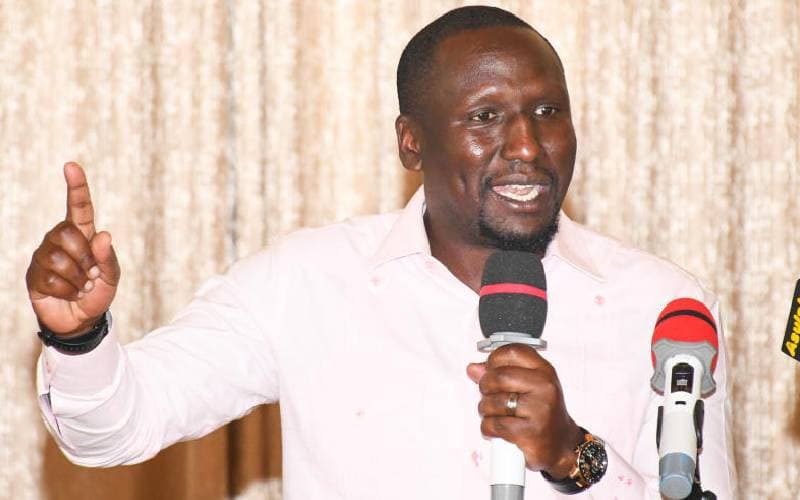We're loading the full news article for you. This includes the article content, images, author information, and related articles.
Calls to dissolve the National Cohesion and Integration Commission mount in Parliament amid accusations of incompetence as inflammatory rhetoric escalates ahead of the 2027 elections, raising fears of a repeat of past electoral violence.

Members of the Kenyan Senate are calling for the disbandment of the National Cohesion and Integration Commission (NCIC), citing the agency's perceived failure to tackle a significant rise in hate speech and inflammatory language by political leaders. During a heated session on Monday, November 3, 2025, senators accused the commission of being “too casual” and ineffective, warning that the country risks sliding back to the violence witnessed after the 2007 elections if decisive action is not taken.
The Senate Committee on National Cohesion, Equal Opportunity and Regional Integration grilled NCIC Chief Executive Officer Daniel Giti over the commission's apparent inaction. The summons followed concerns raised by nominated Senator Catherine Mumma regarding unchecked inflammatory remarks by influential public figures, which have proliferated on social media platforms. Lawmakers expressed alarm that as the 2027 General Election approaches, ethnic profiling and divisive rhetoric are becoming increasingly mainstream, threatening national stability.
Established in the aftermath of the 2007-2008 post-election violence, the NCIC was mandated to promote national unity and eliminate ethnic discrimination. However, it has long faced criticism for being a “toothless” body, unable to secure a single conviction of a high-profile politician for hate speech. NCIC Commissioner Dr. Danvas Makori admitted in an October 2025 interview that the legal framework is intentionally weak, with an “unrealistically high threshold” for proving hate speech in court. He revealed that proposed amendments to strengthen the NCIC Act have stalled in Parliament for over three years, suggesting a lack of political will from legislators, who are often the primary culprits.
The commission's own data highlights the growing problem. In a press statement on May 27, 2024, the NCIC noted a resurgence of inflammatory rhetoric. Between November 2023 and July 2024, the commission flagged 268 cases of problematic content on social media, including 6 cases of hate speech and 24 of incitement. Despite these numbers, the commission's power is limited; it can investigate but relies on the Director of Public Prosecutions (DPP) for prosecution, a process that has consistently failed to yield convictions.
Recent incidents have intensified the scrutiny on the NCIC. Remarks by Nyeri Governor Mutahi Kahiga in October 2025, which were widely condemned as ethnically charged, led to a surge of online vitriol between communities. Although the governor later apologized, the incident underscored the commission's reactive rather than proactive stance. Nominated Senator Joyce Korir criticized the NCIC's response as mere “stories” and demanded to see concrete measures and progress on prosecuted cases.
The sentiment is shared by civil society organizations, which have accused the NCIC of having a “tattered record” in holding politicians accountable. In January 2025, the Kenya National Civil Society Centre opposed proposals by the NCIC to regulate peace-building missions, viewing it as a bureaucratic overreach by an agency failing in its core mandate. The public's frustration is palpable, with many viewing the commission as an ineffective recipient of taxpayer money that has failed to curb the very vice it was created to eliminate.
As calls for its disbandment grow louder, the debate now centers on whether the NCIC can be reformed or if its mandate should be transferred to other agencies. The commission has advocated for legal amendments to grant it more powers, including expediting hate speech cases within six months and imposing stricter penalties, such as a 10-year jail term and a five-year ban from public office for convicted individuals. However, the legislative gridlock on these proposals raises questions about their feasibility.
With the 2027 elections on the horizon, the failure to effectively police hate speech poses a significant threat to Kenya’s social and political fabric. The current trajectory, as warned by lawmakers and analysts, bears a disturbing resemblance to the periods preceding previous electoral violence. The pressure is now on Parliament and the Executive to either empower the existing commission with the legal teeth it desperately needs or to devise a new, more effective mechanism for fostering national cohesion and holding purveyors of hate to account before the political climate deteriorates further.
Keep the conversation in one place—threads here stay linked to the story and in the forums.
Sign in to start a discussion
Start a conversation about this story and keep it linked here.
Other hot threads
E-sports and Gaming Community in Kenya
Active 9 months ago
The Role of Technology in Modern Agriculture (AgriTech)
Active 9 months ago
Popular Recreational Activities Across Counties
Active 9 months ago
Investing in Youth Sports Development Programs
Active 9 months ago
Key figures and persons of interest featured in this article